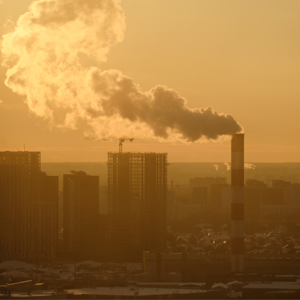Important Tips For Fighting Industrial Pollution In Your Louisiana Neighborhood
 For many Louisiana residents, industrial pollution is more than just a distant concern. It’s an everyday reality that affects the air they breathe, the water they drink, and the safety of their homes. Fortunately, you are not powerless.
For many Louisiana residents, industrial pollution is more than just a distant concern. It’s an everyday reality that affects the air they breathe, the water they drink, and the safety of their homes. Fortunately, you are not powerless.
In this article, we break down the legal options available to those living near polluting facilities. From citizen suits to public records requests, we’ll explore what residents can do to push back against industrial pollution in Louisiana neighborhoods and protect their communities.
What Legal Rights Do Residents Have To Fight Industrial Pollution In Louisiana Neighborhoods?
Most of the major federal environmental laws, including the Clean Water Act, Clean Air Act, Resource Conservation and Recovery Act (RCRA), Comprehensive Environmental Response, Compensation, and Liability Act (CERCLA), and the Safe Drinking Water Act, contain provisions that allow lawsuits known as citizen suits. Citizen suits allow individuals to step in and take legal action when regulatory agencies, like the Federal EPA or Louisiana’s Department of Environmental Quality (LDEQ), fail to enforce pollution laws.
So, if a facility exceeds pollution limits or has unpermitted releases and the government does not act, impacted citizens can sue the facility themselves. Legal remedies may include civil penalties, court orders to prevent future violations (called injunctions), and attorneys’ fees, shifting the financial burden of litigation from the citizen to the polluter.
There are also two other civil legal avenues available:
Nuisance Claims
If pollution interferes with your reasonable use and enjoyment of your property, you may be able to file a nuisance lawsuit. Relief can include monetary compensation and an order to stop the harmful activity.
Tort Actions
Even if you’re not a nearby property owner, if a polluter’s actions directly harm you, you can bring a tort claim. This type of case generally requires proof of personal harm and is often the most difficult to win but remains an option.
Each path provides a different route to polluter accountability. Citizen suits are typically the strongest, followed by nuisance actions, and finally tort claims.
How Can Louisiana Residents Identify The Exact Source Of Industrial Pollution Near Their Homes?
Fortunately, many tools are available to help residents find out what’s happening in their communities, and most of the tools are public. Some include:
Electronic Document Management System (EDMS)
Run by LDEQ, this online database contains permits (such as air, water, and waste) and reports submitted – by the industrial facilities themselves. If you know the name of the facility you can find its agency interest number on the site and easily search for relevant pollution records.
Emergency Planning and Community Right-to-Know Act (EPCRA)
Under this federal law, companies must report hazardous materials they use and toxic substances they release. This includes potential emergency incidents that could impact nearby residents.
Louisiana Public Records Act (LPRA)
You can also use the Louisiana Public Records Act (LPRA) to request documents from state or local agencies.
Freedom of Information Act (FOIA)
For federal agencies like the EPA or the Corps of Engineers, the Freedom of Information Act (FOIA) applies. Just like the LPRA for state agencies, FOIA allows you to ask for documents from federal agencies.
The process of requesting information from the government can be intimidating at first glance, but you don’t have to get started on your own. Our experienced environmental attorneys can help you navigate these systems and gather the necessary documentation to begin getting relief or building a case.

Clay Garside of Waltzer Wiygul & Garside in Louisiana is a leading environmental attorney with a long-standing commitment to protecting communities from industrial pollution.
With decades of experience litigating against powerful polluters and working alongside grassroots organizations, Clay has helped residents across Louisiana hold facilities accountable under both state and federal environmental laws. His deep understanding of citizen suits, nuisance, and tort claims makes him uniquely qualified to guide individuals facing these challenges.
If your neighborhood is suffering from pollution, Clay can help you take meaningful legal action. Contact Waltzer Wiygul & Garside today to explore your options.
Who Should Industrial Pollution Be Reported To In Louisiana?
Who you report to depends on the urgency and type of incident. For emergencies, such as toxic releases and explosions, call the National Response Center at 1-800-424-8802. They coordinate emergency response with local and federal agencies.
In non-emergency situations, the Louisiana Department of Environmental Quality (LDEQ) is the primary state agency handling pollution complaints. The federal Environmental Protection Agency (EPA) may also be able to intervene when state efforts fall short or the impacts are significant.
Furthermore, whether it’s your city council member, parish representative, or state legislator, don’t forget that informing elected officials creates pressure and encourages agency action. The more reports elected officials receive, the more likely they are to act.
What Are The Next Legal Steps If Industrial Pollution Continues Despite Complaints In Louisiana?
If government agencies don’t respond adequately, don’t give up. We work hand in hand with several environmental organizations in Louisiana are able and ready to help, including the:
- Louisiana Environmental Action Network (LEAN): Covers a wide range of environmental issues statewide
- Waterkeeper Alliance / Healthy Gulf: Focuses on pollution in waterways
- Louisiana Bucket Brigade: Specializes in air pollution and petrochemical facility monitoring
These organizations can connect residents with:
- Scientific resources and environmental data
- Attorneys with experience in pollution cases
- Community organizing tools to amplify your voice
Of course, you can also reach out directly to the environmental lawyers at Waltzer Wiygul & Garside to pursue legal action or gather more information.
What Should Louisiana Communities Look For In An Environmental Attorney To Fight Industrial Polluters?
Environmental law is a highly specialized and complex field. The overlap between state and federal regulations, combined with scientific data and legal technicalities, makes experience absolutely essential. So when looking for an attorney, be sure to look for someone with:
- A track record in environmental litigation
- Familiarity with citizen suits, nuisance, and tort claims
- Knowledge of Louisiana-specific regulatory procedures
A general practice attorney may not be equipped to handle the nuances of these cases. Our experienced environmental attorneys know how to gather the right evidence, navigate public records, and craft a strong case on behalf of affected communities.
Still Have Questions? Ready To Get Started?
For more information on industrial pollution in Louisiana neighborhoods, an initial consultation is your next best step. Get the information and legal answers you are seeking by calling (504) 254-4400 today.

Clay Garside of Waltzer Wiygul & Garside in Louisiana is a leading environmental attorney with a long-standing commitment to protecting communities from industrial pollution.
With decades of experience litigating against powerful polluters and working alongside grassroots organizations, Clay has helped residents across Louisiana hold facilities accountable under both state and federal environmental laws. His deep understanding of citizen suits, nuisance, and tort claims makes him uniquely qualified to guide individuals facing these challenges.
If your neighborhood is suffering from pollution, Clay can help you take meaningful legal action. Contact Waltzer Wiygul & Garside today to explore your options.